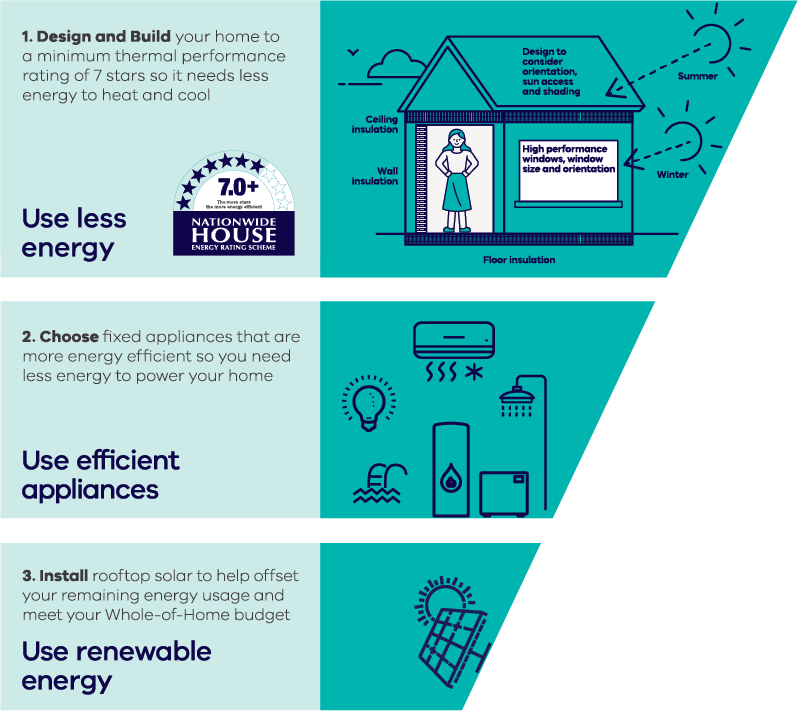On this page:
Improving the energy efficiency of new Victorian homes
On 26 August 2022, Victoria agreed to increase minimum energy efficiency building standards for new homes from 6 to 7 stars under changes to the National Construction Code 2022.
Energy efficient homes are more comfortable to live in, cost less to heat and cool, and help reduce greenhouse gas emissions.
These changes added a new Whole of Home energy use budget that includes fixed appliances such as heating and cooling, hot water and lighting. This will make homes cheaper to run, more comfortable to live in, and more resilient to extreme weather.
Updated energy efficiency standards for new homes have a mandatory commencement date in Victoria of 1 May 2024.
Victoria will also remove barriers to installing efficient electric hot water systems under the new code, helping households experience further benefits from investing in solar panels, and supporting Victorians who choose all-electric new homes.
Read the new energy efficient building standards questions for householders and building practitioners.
Ways to meet new energy efficiency standards that have a mandatory commencement date of 1 May 2024

Sustainability Victoria 7 Star Homes program
The 7 Star Homes program works with businesses and individuals across the building and construction supply chain to increase capability and capacity for delivering energy-efficient homes.
Sustainability Victoria is providing rebates to registered builders and land developers to design and build 7 star NatHERS rated homes. They are also providing online training resources for builders, designers and assessors to go from 6 to 7 star homes.
For more information, please visit 7 Star Homes Program.
Solar Victoria’s Solar Homes rebate program
Rebates are available to reduce the upfront cost of installing solar panels (PV), solar hot water and solar batteries, along with incentives including interest-free loans for solar panels (PV) for existing homes and, more recently, homes under construction.
Households with solar can save an average of $1,073 each year in electricity costs by generating and using their own energy.
Households that install both solar panels and solar hot water or an energy efficient heat pump can save up to $1,473 each year in electricity costs.
For more information, visit solar.vic.gov.au.
Regulations
National Construction Code 2022 Decision Regulatory Impact Statement
Victoria has played an active role in this national process, building on the Trajectory for Low Energy Buildings signed by all State, Territory and Commonwealth Governments in 2019. An important milestone has been reached with the release of the National Construction Code 2022 Decision Regulatory Impact Statement (DRIS). The DRIS explains why change is needed and demonstrates the benefits to households.
The DRIS supported State and Territory Building Ministers in deciding to adopt the new standards.
Visit the Australian Building Codes Board's Consultation Hub for more information on the DRIS, including a plain language guide.
To inform this work, DEECA evaluated the impacts of the current 6-star standard in Victoria, which explains public and private benefits from the previous increase in the energy efficiency requirements for new homes (from 5 to 6 stars).
Page last updated: 25/07/24
